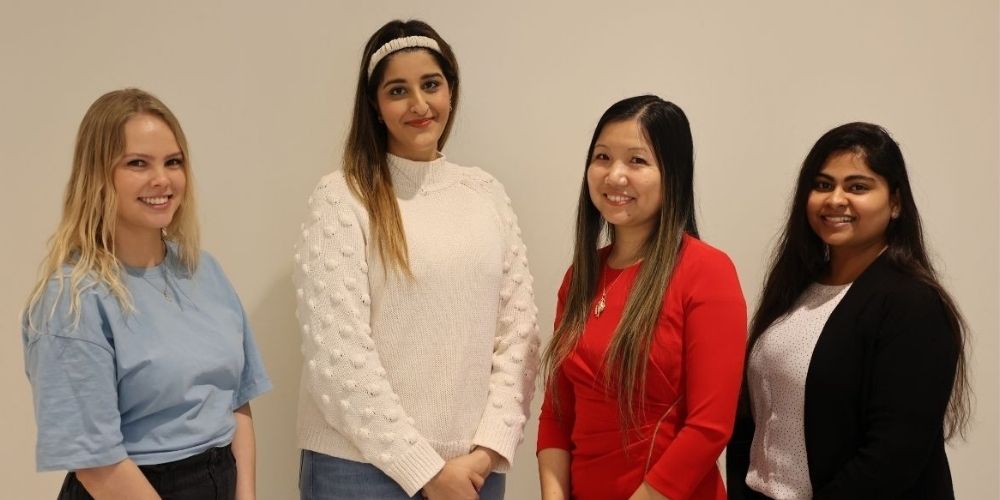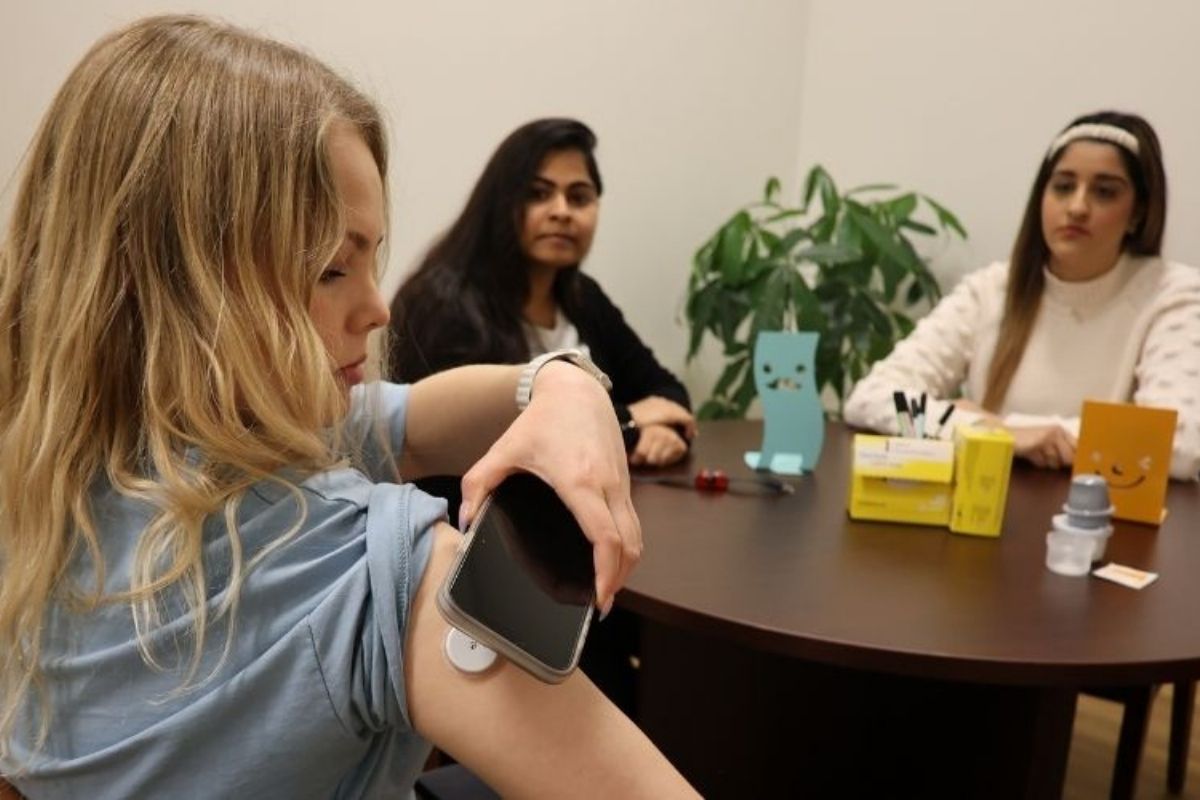‘We want to do better’

A team of researchers at The University of Texas at Arlington hopes that wearable technology will inspire cancer survivors to take a closer look at their long-term health.
Led by Liao Yue, assistant professor in kinesiology in the College of Nursing and Health Innovation, and in collaboration with clinicians from UT Southwestern Medical Center, a new three-year study will explore whether personalized biological feedback through data gathered with wearable technology will motivate cancer survivors to lead more active lifestyles.
The research team will track the glucose levels and daily activity of 25 participants using a continuous glucose monitor and Fitbit activity tracker. Liao and her team will turn that data into customized text messages sent to participants multiple times a week.
The intent is to send messages that a fitness tracker user may typically receive and connect it with more informative biological metrics, providing meaning and significance to one’s daily activity. The participants’ progress will be compared with 25 additional volunteers who will receive only standard Fitbit messages without customization.

“You might get some notifications or alerts from your device, but we think those are not good enough for behavior change,” Liao said. “We want to do better.”
A typical example of a fitness tracker notification is a “nudge” that vibrates to alert the user if they have not walked at least 250 steps over the past hour. Users receiving customized feedback in Liao’s study would get insight into how their body is changing in real time due to increased activity. An example notification would say “It’s time to review your glucose data! Your average weekly glucose level went from 108 to 95 mg/dL. This is great! Your average daily steps from last week were between 8,123 and 12,567. Try to keep up with your activity level this week as well!”
Liao’s team includes UTA students who are gaining hands-on research experience. Alina Choudry, a senior public health major and student intern on the team, calls the project a unique opportunity.
“I’ve never done a research project like this before,” Choudry said. “I see myself doing research like this in the future.”
Hannah Affleck, a master’s student in public health, said she hopes the personalized feedback inspires participants to make long-lasting changes.
“Most people see notifications on the devices they are wearing and just swipe it away, saying ‘That’s not going to help me,’” Affleck said. “I hope that we can gain insight from this research that allows us to create something that actually helps motivate people to make a behavior change and better their health.”
Liao hypothesizes that more immediate and detailed feedback will allow participants to see in real time a direct connection between daily activity and health-related metabolic outcomes. This is especially important among cancer patients, who are at higher risk for developing chronic diseases because of their cancer history. Type 2 diabetes is one of the most common co-occurring conditions among cancer survivors.
“Most cancer survivors in the United States do not engage in regular physical activity as recommended by experts, so we really need to find strategies that can help them become more active in their daily lives,” Liao said.
Mahima Pandya, a master’s student studying kinesiology and exercise science and a research assistant on Liao’s team, said she believes that this is where wearable technology can help.
“The health care industry is not very aware of wearable devices that can be used to treat patients,” Pandya said. “I want to learn more about that so I can use it on a clinical basis.”
The American Institute for Cancer Research (AICR) is funding the study.
“This project harnesses the increasing availability of wearable technology and digital communication to empower participants to make lifestyle changes because they can see the almost instant impact on important health metrics,” says Dr. Nigel Brockton, vice president of research at the AICR.
“This grant shows the increasing recognition of the importance of a healthy lifestyle for cancer survivors,” Liao said. “I am grateful that our work is being recognized by the cancer community.”